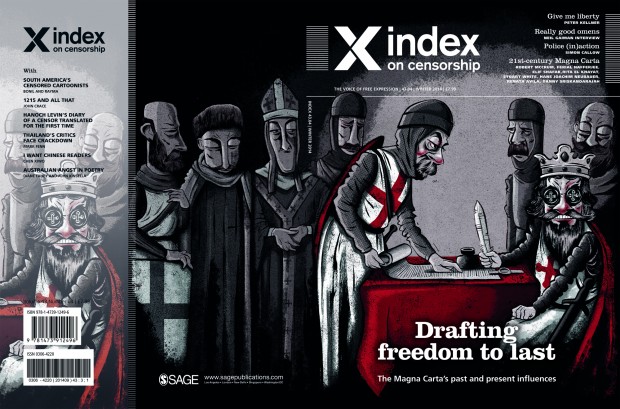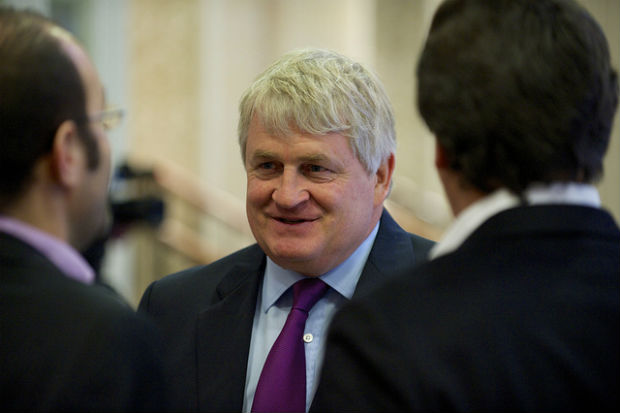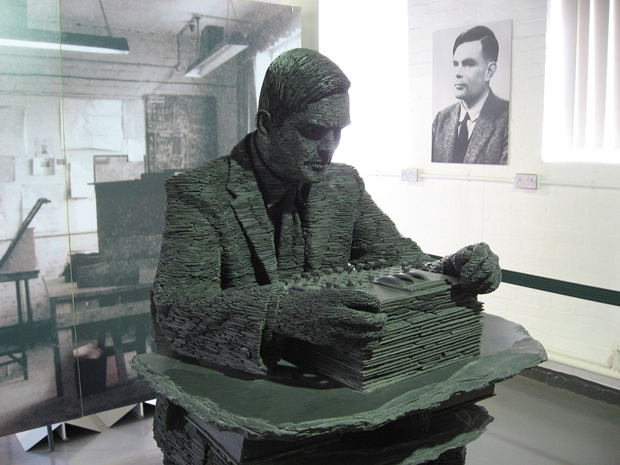4 Jun 2015 | Events

Photo: Thomson Reuters Foundation
Six months after the Charlie Hebdo attacks in Paris, journalists face more threats than ever before, from harassment to imprisonment to murder – since the beginning of the year, 50 journalists have been killed.
While some countries, like Norway, have scrapped blasphemy laws to strongly assert freedom of speech, others such as the UK are increasing state surveillance and censorship to “protect citizens from violence”. How can international law protect journalists in this challenging and unique context? Is it possible to strike a balance between security concerns and freedom of expression? Is the right to free speech an absolute one?
Join the Thomson Reuters Foundation, Reporters Without Borders and Paul Hastings LLP for a panel debate featuring:
- John Lloyd, Reuters Institute and Financial Times
- Prof Timothy Garton Ash, Oxford University
- Sylvie Kauffmann, Le Monde
- William Bourdon, Paris Bar and Association Sherpa
- Jodie Ginsberg, Index on Censorship
When: Monday 29 June, 6:00pm (followed by drinks reception & canapés)
Where: Edelman, London, SW1E 6QT (Map/directions)
Tickets: Free, book here
#FreeSpeechDebate
4 Jun 2015 | Europe and Central Asia, Ireland, mobile, News and features
“Where would we be in Ireland if four million people had to make public all their banking relationships?” tycoon Denis O’Brien asked in an Irish Times opinion piece last week. It is a more interesting question than I suspect O’Brien meant it to be. The Irish economy suffered heavily from the nods, winks, strokes carried on behind closed doors throughout the 90s and 2000s, and perhaps a little more transparency, a touch more daylight shed on banking matters, would have been for the good.
O’Brien, owner of a large central plain of Ireland’s media landscape, was writing for one of the newspapers he didn’t own amidst a controversy surrounding his own private banking relationships, specifically his relationship with the state-owned Irish Bank Resolution Corporation (IBRC).
Independent TD Catherine Murphy had made allegations in the parliamentary chamber regarding the interest rate Mr O’Brien had been given on a €500m loan from IBRC. The loan related to the purchase of Siteserv, a major recycling firm.
O’Brien, on learning about Murphy’s remarks, apparently while breakfasting in Haiti, was incensed by what he saw as a blatant breach of privacy, and immediately instructed his lawyers to seek an injunction on the reporting of the Dáil speech, which they duly won. “It was one of those nanosecond decisions,” O’Brien wrote, in an article brimming with indignation. Those who criticised the injunction were engaged in nothing less that a witch hunt: “I have never experienced the level of abuse, venom and hatred resulting from taking a stand to protect privacy in relation to my financial affairs.” He then signed off, oddly: “I will always be proud to be Irish, optimistic and a republican with a small ‘r’.” Good to know, Denis.
Actually, that last statement is worth looking at: in spite of it all, in spite of all the slings and arrows, in spite of the insufferability of this stupid, petty, greasy-till fumbling little country, O’Brien will not abandon Ireland. He is proud, he is optimistic, he is a republican, but not too republican. We are lucky to have him.
This language was echoed by his spokesman James Morrissey, who told RTE’s Keelin Shanley that, frankly we were lucky to have O’Brien. “I think it’s important to mention, and it would be a celebratory fact if it was an IDA-backed [state-assisted] company, but Denis O’Brien employs in and around 10,000 people both directly and indirectly in this country and he’s entitled to invest and he’s entitled to have his leading bid for a company accepted.”
In Ireland, you see, wealth and employment are articles of faith, and they should not be questioned lest they melt into air.
I am not even going to attempt to get into the exact details of O’Brien’s finances. The injunction on reporting was “clarified” earlier this week, and as a result, you can now read articles such as this one on The Journal, which was removed after the injunction was initially granted, reporting on Murphy’s speech.
No, these are not the business pages and others will report on the ins and outs better than I. What concerns us here are two factors: parliamentary privilege, and the public interest.
First of all, parliamentary privilege: that is, the right to speak without hindrance in parliament, and the right for the press to report what is said in parliament.
While O’Brien’s spokesman Morrissey may have dismissed the Dáil as a “talking club”, it’s absolutely crucial to a democracy that elected representatives can make their representations fearlessly. Lord knows it doesn’t happen enough, but we should be encouraging it.
Almost six years ago in Britain, in an important moment for the free press, democracy and justice, The Guardian took on metals and energy company Trafigura when it attempted to stifle reporting of an internal document on a waste spill. On that occasion, Carter-Ruck attempted to stop the papers from reporting a parliamentary question from Paul Farrelly MP on the issue. Trafigura and its lawyers backed down on their injunction just hours before The Guardian was due to appeal. It was an important moment, not just in upholding the principle of parliamentary privilege, but also in proving its worth (it should be noted that some idiotic things can also be done under the mantle of parliamentary privilege, but the good rather outweighs the bad).
Returning to present-day Ireland, here’s the transcript where O’Brien’s spokesman called the nation’s parliament a “talking club”:
Shanley: [W]hat relevance is it how many people [O’ Brien] employs in this country? I mean we’re talking here about press freedom. We’re talking about somebody with huge power, who owns half of the media and is preventing the other half from reporting…”
Morrissey: “No I think you’re missing my point. I was just saying when [opposition parliamentarian] Billy Kelleher talks about powerful people. A powerful person has the same rights as a person who’s not powerful and that is a democratic right to their good name and reputation and not to have it sullied in the Dáil. And I think, to be brutally blunt about it, the Dáil is a bit of a talking club. They want their own rules for themselves and I think, to be fair, it’s important that people stand up for democracy inside the Dáil, as well as outside the Dáil because that’s the basis on which they get elected.”
Note here that democracy is whatever you want it to be at that particular time: and the things you do not want can be undemocratic. Note the spokesman for the nation’s wealthiest person making an appeal to the common man against the political class. O’Brien, his spokesman is saying, is an ordinary man with the same rights as the rest of us.
But here’s the question of public interest: is he? Clearly, he has more money than us. And because of that, he has more influence than us. O’Brien, he of the 10,000 jobs, is very, very important. There is, it would appear to me, an obvious difference between him getting a €500m loan from a state bank, and you or I getting a €50,000 small business loan. O’Brien cannot be in the same breath this great important job creator and media mogul, and just a humble man who can enjoy absolute privacy.
The price, perhaps of the privilege O’Brien enjoys with his fortune is our privilege to know what he’s doing with it.
This column was posted on 4 June 2015 at indexoncensorship.org
4 Jun 2015 | Events, mobile
To mark the 500th anniversary of King’s College Chapel in Cambridge, the King’s Politics Society is hosting two events to celebrate the college’s legacy and its alumni – in particular, computer scientist and WWII code-breaker Alan Turing, and pioneering economist John Maynard Keynes.
Index is delighted to be taking part in the first of these debates, asking: can liberty survive in the information age?
Speakers include:
Baron Rees of Ludlow – UK Astronomer Royal
Charles Clarke – Former Home Secretary and Labour MP
Eben Upton – Co-Founder of the Raspberry Pi, which has sold over 5 million units across the world, making it the fastest-selling British personal computer
Jodie Ginsberg – Chief Executive of Index on Censorship
When: Tuesday June 16, 7.30pm
Where: King’s College Chapel, Cambridge
Tickets via The King’s Politics Society
4 Jun 2015 | Events, mobile

The winter 2014 issue of Index on Censorship magazine, which featured a special report on the Magna Carta’s past and present influences
The City of London played an active role in the events that led to Magna Carta’s creation in 1215 and one of the few remaining copies resides in the City.
To mark the Magna Carta’s 800th anniversary the City of London Festival has invited suggestions from individuals and organisations throughout the UK as to what should be included in a 21st Century Magna Carta. Email your suggestions to [email protected].
Join a distinguished panel to consider and debate the public’s 21st Century recommendations.
Speakers include:
Justin Fisher (professor of political science & director, Magna Carta Institute)
John Cooper QC (barrister; columnist, The Times)
John Fitzpatrick (Kent Law Clinic)
Rachael Jolley (Editor, Index on Censorship magazine)
Chair: David Bowden (Institute of Ideas)
When: Wednesday July 8, 6.30pm
Where: Bishopsgate Institute, 230 Bishopsgate, London EC2M 4QH
Tickets via City of London Festival website




